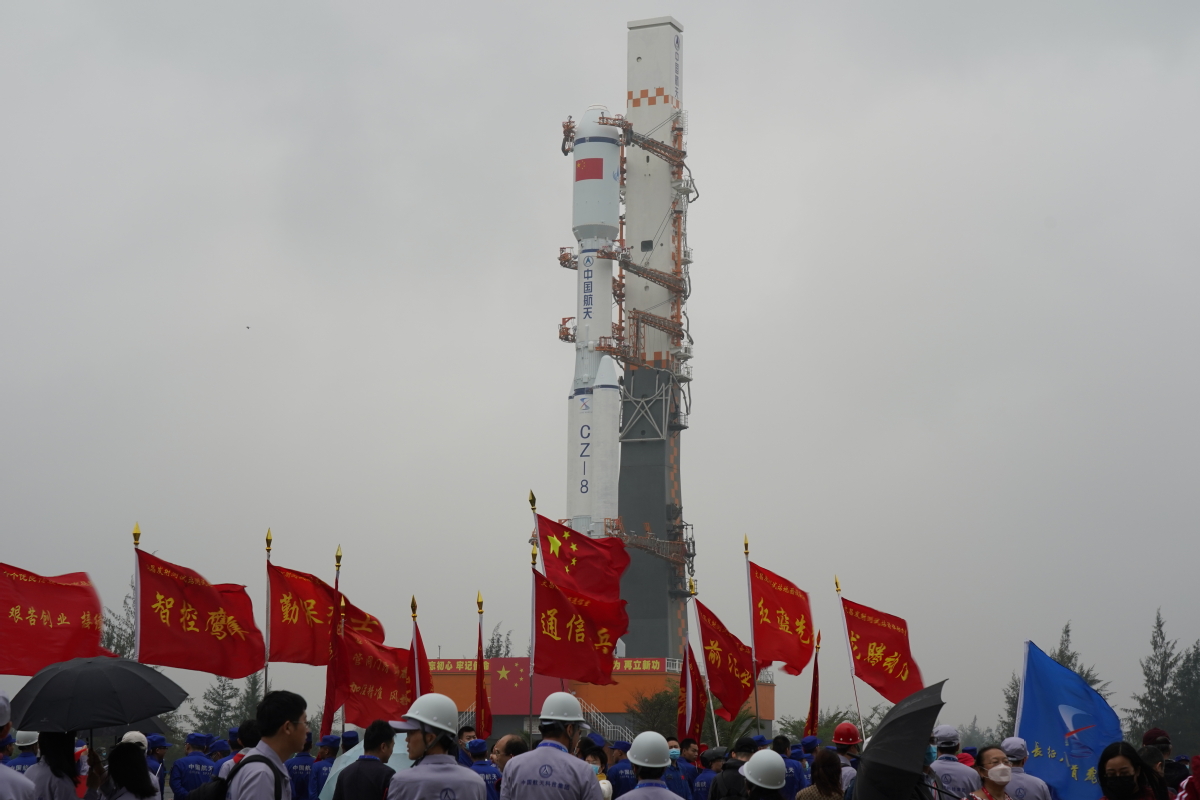Newest Long March rocket ready for debut
By ZHAO LEI | China Daily | Updated: 2020-12-17 10:08

China's newest carrier rocket - the Long March 8 - will soon make its debut flight from the Wenchang Space Launch Center in Hainan province, the China National Space Administration said on Wednesday.
The first Long March 8 rocket was moved to its launch pad on the coast of the island province on Wednesday morning, the administration said in a statement, and the rocket will be injected with propellants in due course. The launch will take place before the end of this month, the administration added.

Designed and built by the China Academy of Launch Vehicle Technology, a subsidiary of State-owned conglomerate China Aerospace Science and Technology Corp, the Long March 8 will be tasked with meeting surging demand for launch services from commercial satellite companies at home and abroad.
An increasing number of private Chinese companies have started to design and build satellites, generating huge demand for commercial launch services.
The rocket has a core stage with a diameter of 3.35 meters and two 2.25-meter-wide side boosters. With a liftoff weight of nearly 360 metric tons, it is capable of sending payloads weighing 5 tons into a sun-synchronous orbit 700 kilometers above the ground or satellites with a combined weight of 2.8 tons to a geostationary transfer orbit, according to the academy.
Project managers have estimated that at least 10 Long March 8s will be used each year, given the demand from domestic and international satellite businesses, while annual manufacturing capacity will soon reach 20.
Bao Weimin, director of science and technology at China Aerospace Science and Technology Corp and an academician of the Chinese Academy of Sciences, said that putting the Long March 8 into service will improve China's sun-synchronous launch capability and boost the nation's commercial space industry.
"The rocket is expected to fill a gap in our rocket fleet because we now don't have a suitable model to send a satellite weighing from 3 to 4.5 tons into a sun-synchronous orbit," he said. "It can also be used for missions to low-Earth and geostationary transfer orbits."
In the long run, the rocket is expected to become the first reusable model in the Long March series. Designers plan to conduct the first flight of the reusable variant around 2025, with the aim of improving the rocket's commercial competitiveness.
























